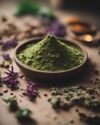
Do I consider myself Indian or American? That's a question Indian-Americans commonly grapple with as they try to navigate the two cultures that influence and impact their lives. “I'm American, Mom! or I don't like Indian food!” are sentiments that I've heard frequently from my children. There's my youngest, who once curiously told my sister-in-law, to her extreme consternation, “I'm not Indian. I'm half-Mexican and half-American! While I knew that his comment stemmed from the adoration he felt for one of my close friends, who is Mexican, and like his surrogate aunt, I felt guilty, thinking that I had failed to instill in him a sense of pride for his own Indian culture. Then there's my oldest, who traveled to India twice and readily embraced the culture and food as a child, but now avoids Indian food like the plague! He'll squawk about mild spices in the occasional curry, and then shrug when I watch him munch on hot Cheetos and Takis. Where did I go wrong, I wondered until I considered my own shifting cultural identity, and its gradual progression and transformation from childhood through adulthood.
Born in India and raised there for six years before joining my family in the United States, I naturally identified more with my Indian roots, at first. Not quite fluent in English and accustomed to a different set of societal customs, I had to both learn and unlearn to assimilate into Western culture. No longer could I run freely around town barefoot, nor did I see cows and goats wandering around everywhere unrestrained. But before long, the Western influences took hold of me and I morphed into a fusion of East and West.
This story is from the {{IssueName}} edition of {{MagazineName}}.
Start your 7-day Magzter GOLD free trial to access thousands of curated premium stories, and 9,000+ magazines and newspapers.
Already a subscriber ? Sign In
This story is from the {{IssueName}} edition of {{MagazineName}}.
Start your 7-day Magzter GOLD free trial to access thousands of curated premium stories, and 9,000+ magazines and newspapers.
Already a subscriber? Sign In

A Flower from THE HEAVENS
November 14 is Children's Day. This year, SARA BUBBER brings to you a world of forests, magical flowers, festivals, and some animals you may have never seen.

Meeting Phenomenal Women
The author, CHITRA BANERJEE DIVAKARUNI, is interviewed here by TARA KHANDELWAL and MICHELLE D'COSTA about her books on mythology, like The Palace of Illusions, which is a retelling of the Mahabharata from Draupadi's point of view, and The Forest of Enchantments, which is a retelling of the Ramayana, from the eyes of Sita. And there's The Last Queen, which is about Rani Jindan's life.

HERBAL TOOTH POWDERS: Rediscovering Ayurveda's Natural Secrets
SRAVAN BANDA presents a natural herbal tooth powder, offering a holistic approach to oral hygiene, harnessing the power of medicinal herbs.

The Dance of Light and Shadow Lessons from the Dolomites
ALAIN DESVIGNE explores the Dolomites, listed as a UNESCO World Heritage Site in 2009.

FINDING OUR WAY
A Polynesian Explorer's Journey of Discovery

The First Imprint: Understanding PTSD
CHRISTIANNA DEICHMANN is the Director of Education at the Association for Pre and Perinatal Psychology and Health (APPPAH), where she educates both professionals and parents on fostering the most nurturing environments for welcoming new life into the world.

The Tipping Point
In this final conversation of the series, J. FREDERICK ARMENT continues to talk with CHRISTINE JONES about promoting peace in the world.

UNLOCK YOUR POTENTIAL
Take The Brighter Minds Path To Cognitive Development

The Intrinsic Goodness of the Heart
DAAJI shares some thoughts on heartfelt acceptance and all it has to offer. He says, \"It is the heart's intrinsic goodness that allows us to accept everything as part of us.

How Does Fear Affect Our Roles as Mothers? - Neelam Shivhare explores some of the great ancient texts of India on motherhood, compares the behavior of Kaikayi and Yashoda
Neelam Shivhare explores some of the great ancient texts of India on motherhood, compares the behavior of Kaikayi and Yashoda, and realizes the importance of removing fear from our hearts in order to nurture our children.For young women like myself, who are future mothers, I trust we are on the path of becoming selfaware and brutally honest with ourselves. We are creative beings, never forgetting the gifts with which we have been bestowed— the love and tenderness, natural instincts, and intuition to feel the right path. It all lies in the mysterious meanderings of the heart. Are we really listening to our hearts, or confusing the bombarding information on social media with reality?